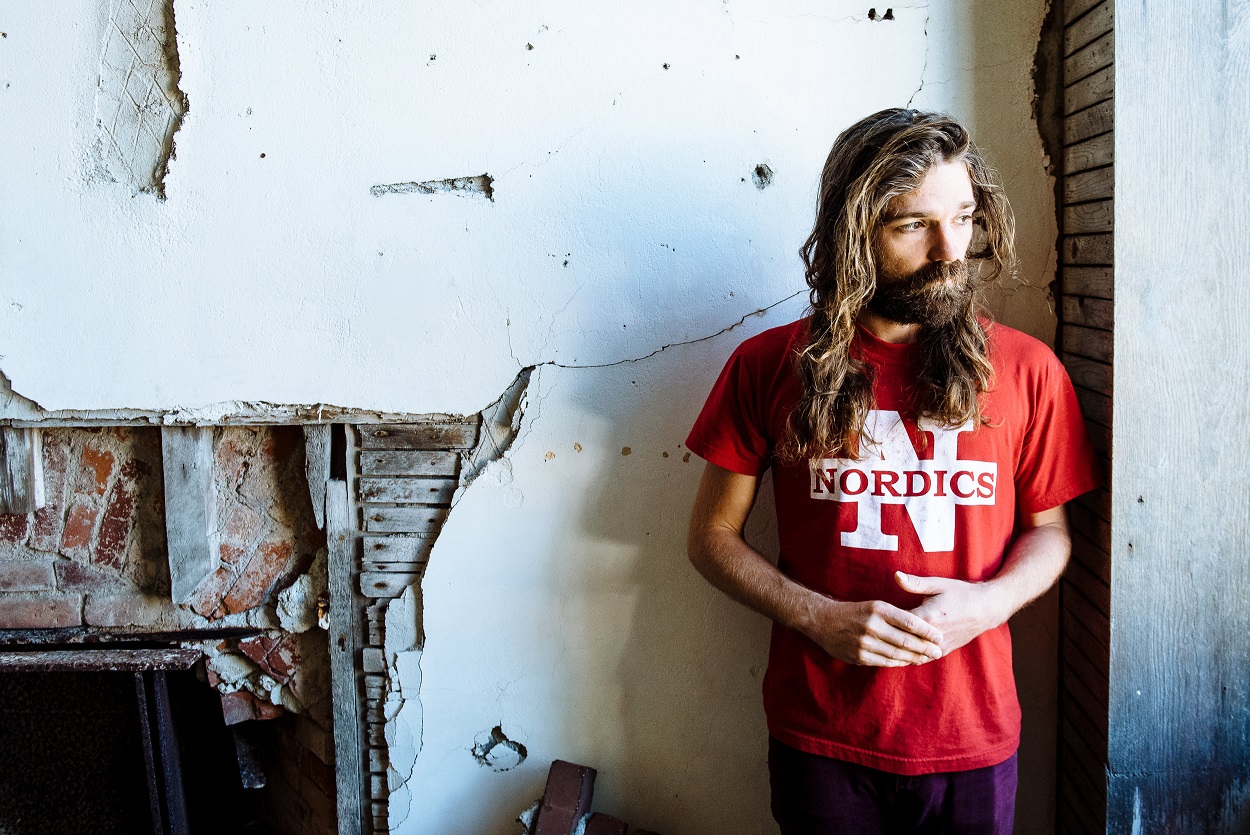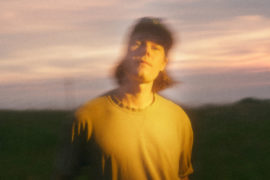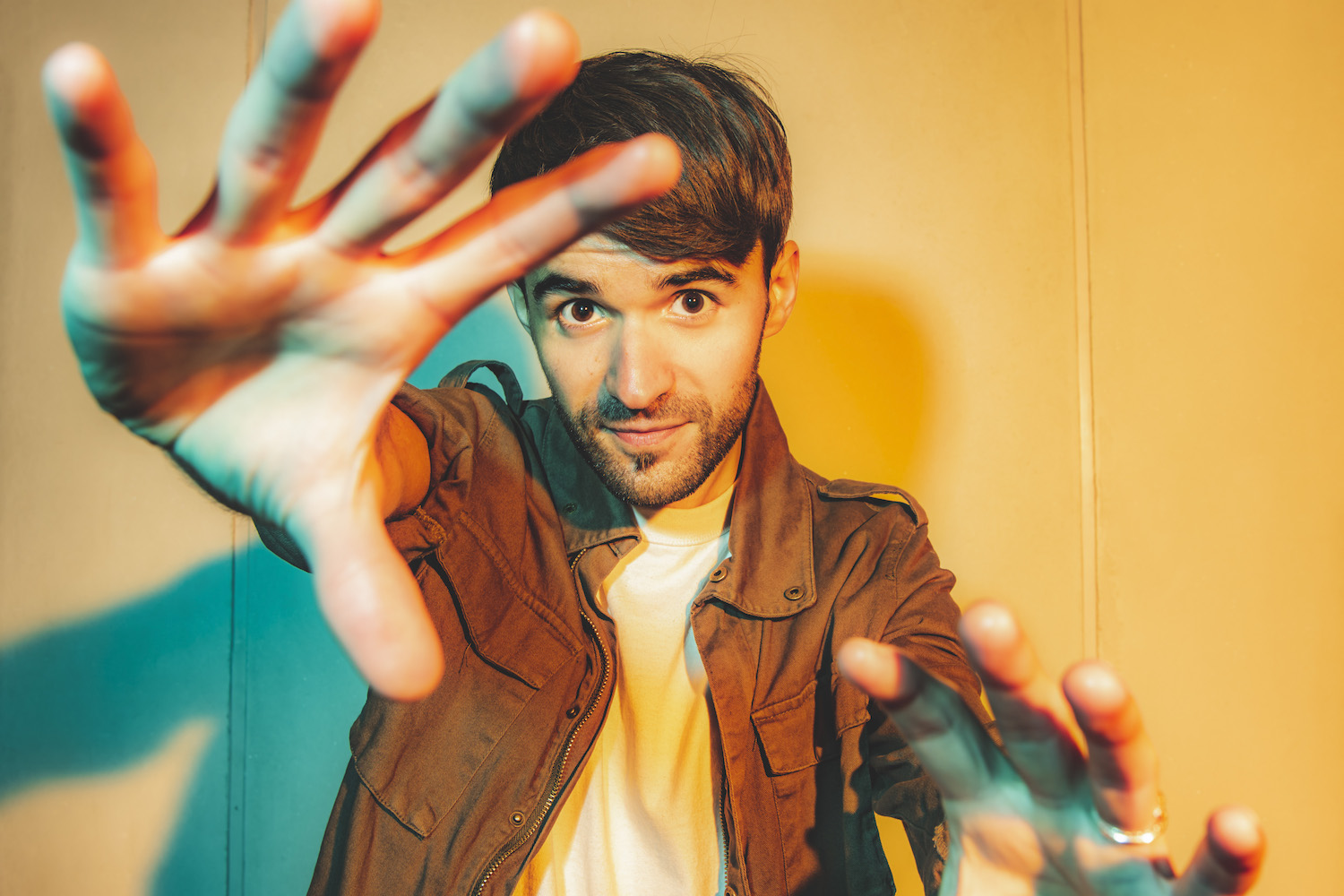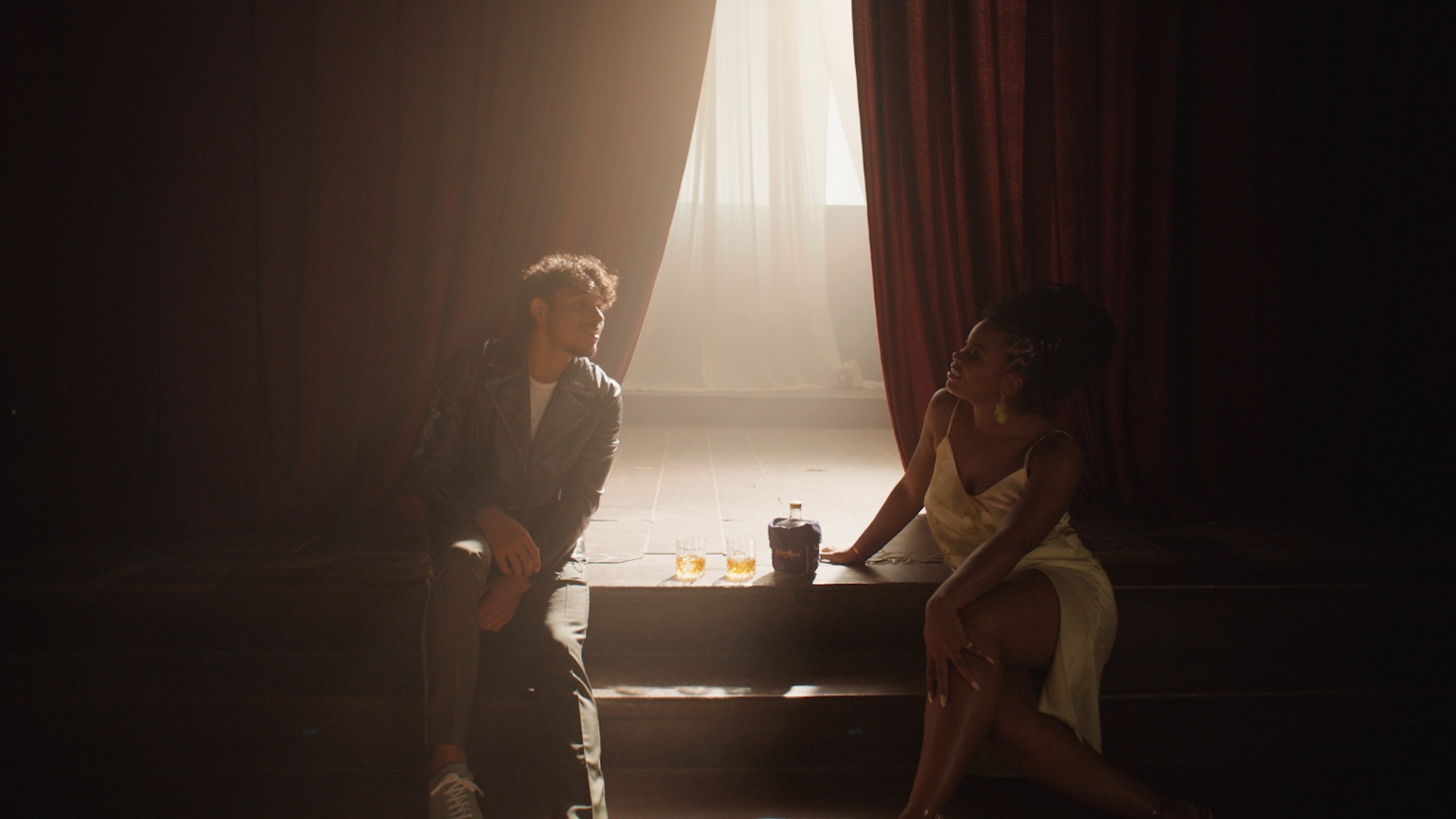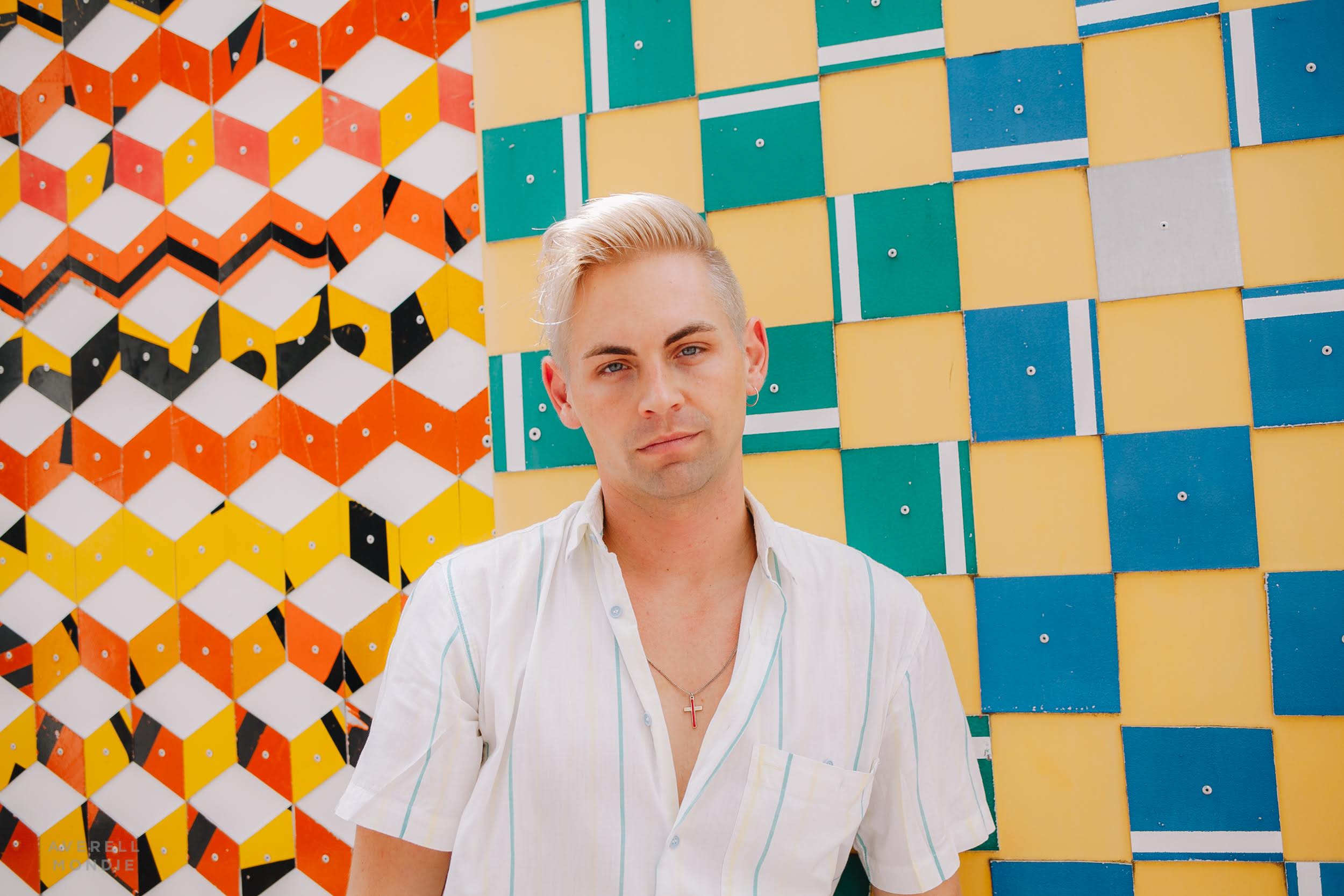Singer/songwriter and producer Jordan Rakei speaks to Atwood Magazine about the musings of life, the fruits of collaboration, parenthood, Abbey Road, and his deeply vulnerable fifth album, ‘The Loop.’
Stream: ‘The Loop’ – Jordan Rakei
Life has a funny way of repeating itself, even over generations of time.
The experiences you heard your parents talk about used to sound like a foreign language, but looking back after a certain number of years, the dots connect and you’re right there with them, living those stories.
The Loop, Jordan Rakei’s newest album release (out now via Decca Records), delves heart first into the ongoing stream of life and the waves of emotion that come with taking on the important role of both example and caregiver.
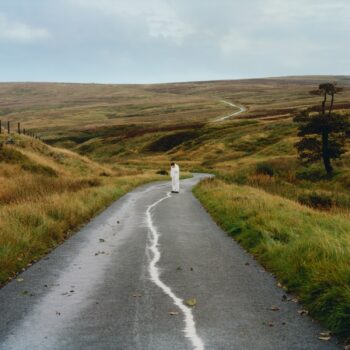
Rakei is a singer/songwriter and producer who currently lives in London, by way of New Zealand and Australia. The Loop arrives three years after his last full-length studio album, What We Call Life. Excitement was high when he spoke to Atwood Magazine about the upcoming release.
“I’m just looking forward to people listening to the whole journey and hearing the world I’ve created,” the New Zealand-Australian native says. “I’m just really proud of the record and excited to show my new chapter and the new ambition I had.”
Despite the new routes his music takes on this latest release, the musical meshes of R&B, jazz, and soul still remain prominent, tokens from his childhood by way of personal interest and parental influence.
The stand-out difference from past creations lies in the words Rakei so skillfully sings.
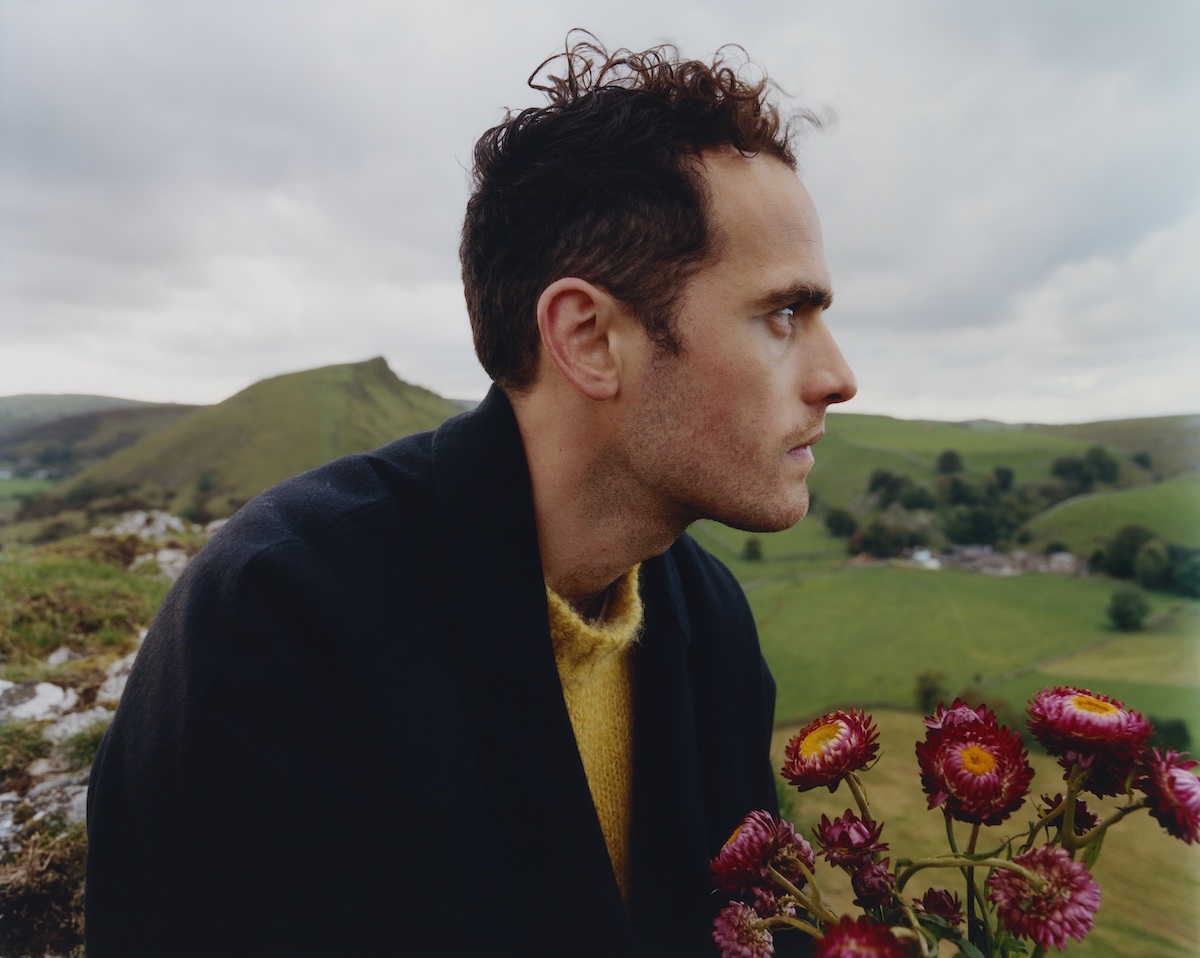
The Loop comes at a changing in the tide of Rakei’s life, with the meaning of its title wrapped up in an understandably life-changing occurrence: Parenthood.
“I’m now a new cog in the wheel of being a parent. I was thinking, “I’ve had a child and one day, he might go to have a child, and we’re just moving forward in this direction and you’re on the journey of life,” Rakei says. “And sort of like in music, it’s a loop.”
“That’s why I felt it was the right time to do something like this. My next album might be something completely different but the way I was feeling at the time, I was craving that sort of thing as a listener, so I just went and made it myself.”
The creative process for this album required a bit of soul searching as he dug into unexplored lyrical terrain.
“It was different to how I’ve done anything before. But, I wanted to be honest with stuff. I think it’s really easy to hide behind metaphors and production tricks, or anything like that but I just really wanted to say stuff how it was.”
A bit of discomfort came as Rakei sorted through old memories and past hurts while writing the album, namely during the last track on the record, where he recounts specific happenings during various stages of his life.
“It’s weird, it’s quite a lonely experience, writing these really heavy journals and then out of nowhere you realize, ‘Oh, wait a minute, I’m a professional musician, I need to release this. I need to get it out to the world.’”
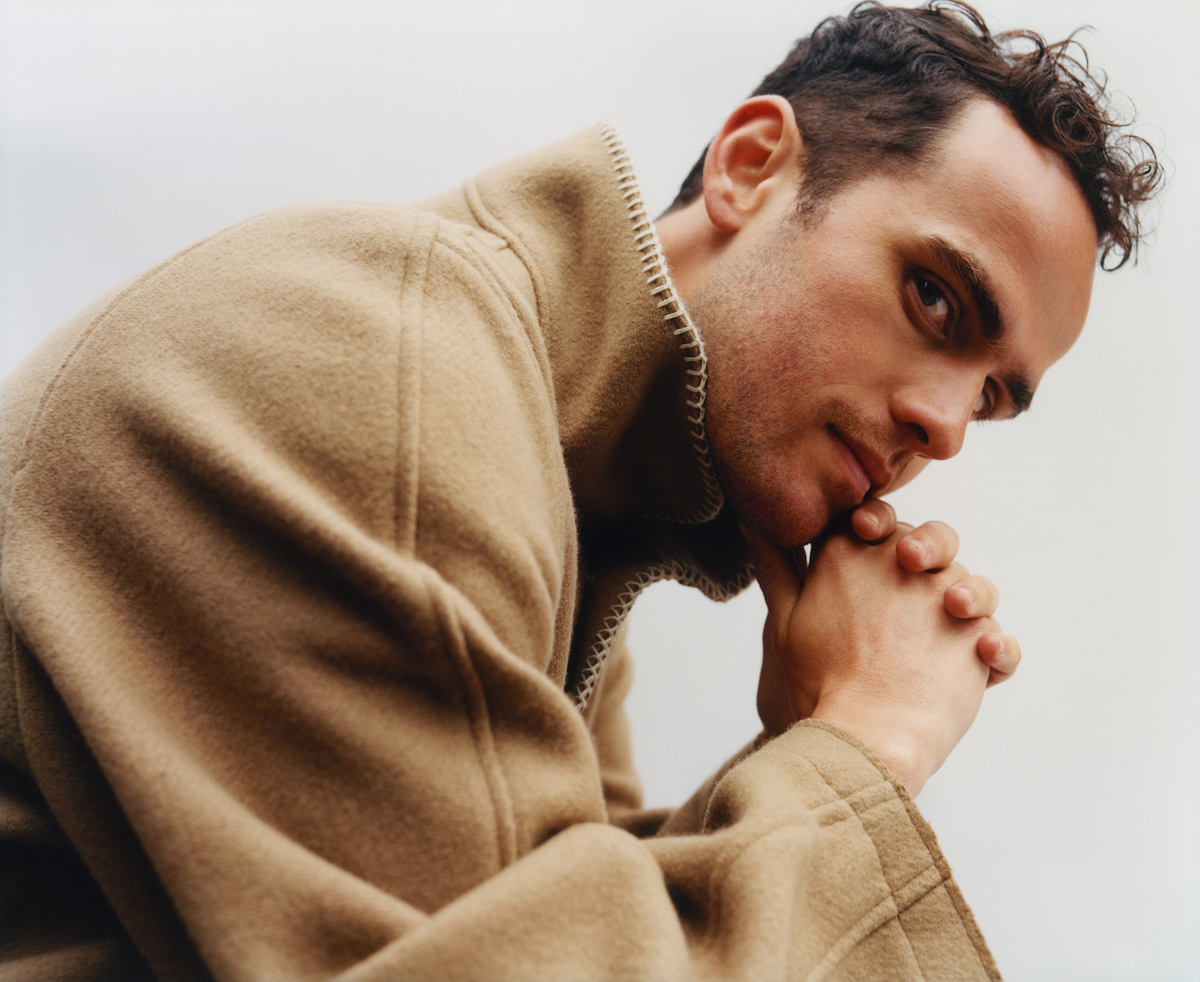
But Rakei wasn’t alone for the whole journey. Collaboration was a key element in the recording of The Loop. As the lyricism of this album leveled up, Rakei knew the soundscape had to as well. He called on an array of musical collaborators to help him welcome listeners into the world he was creating.
“In the past I may have done synthesizers or guitars or anything like that, but I thought I really wanted to replace any sort of overdubbing parts [with] orchestras to create a maximalist effect of the mood I was going for,” he explained.
Rakei borrowed some of his favorite elements from the sweeping sounds of Motown and the emotion stirring swells of cinema as he helped guide the string sections on the album. He highlighted how this shows up on one of the album’s tracks, “Learning.”
“I’m sort of crying out melodically. There’s a sort of feeling of wanting or craving something.I was trying to dictate to the string arranger of that song… I just wanted it to feel like they’re crying and flowing and building as the track’s going,” he says.
He proposed various mental images to his collaborators, trying to evoke certain sounds. But asking a guitarist to imagine they’re sitting on a farm only works if that guitarist has actually sat on a farm.
“Having to translate your vision to someone else is always tricky. But in a way, letting their own vision dictate was actually better because they took it somewhere I didn’t even imagine it could go,” Rakei says.
The blended visions, sounds, reflections, and insights culminated into an album Rakei feels deeply proud of. Allowing other artists into the cocoon of creating such a personal project helped him get there.
“What I learn from other artists is they’re always quite clear and have conviction. I’m naturally a people pleaser, very agreeable,” Rakei says. “…but, I learn from other [artists] that are very sure of their own choices. And in my new album, I just kept trusting myself, being like, “what do I want? What does Jordan want on this song?”
The self-assuredness Rakei held close throughout the process can be heard in each of The Loop‘s thirteen tracks.
The melodies are driven, the instruments are expressive, and stories have an aim. After asking Rakei how he’d suggest fans fully take in the album, a very fitting activity for a spring release came to mind.
“So what I would request people to do is put an hour aside – it’s a long walk – but put an hour aside and just walk around a new neighborhood or just go to a park and walk around and get engrossed in the world that hopefully I’ve created.”
Adding to the celebration of releasing The Loop, Rakei was recently announced to be the recipient of the first-ever Abbey Road Studios residency, earning himself a year-long stint at the iconic musical hub.
Fans and new listeners can catch Rakei live in select North American cities starting November 1, 2024, in Washington D.C.
— —
:: stream/purchase The Loop here ::
:: connect with Jordan Rakei here ::
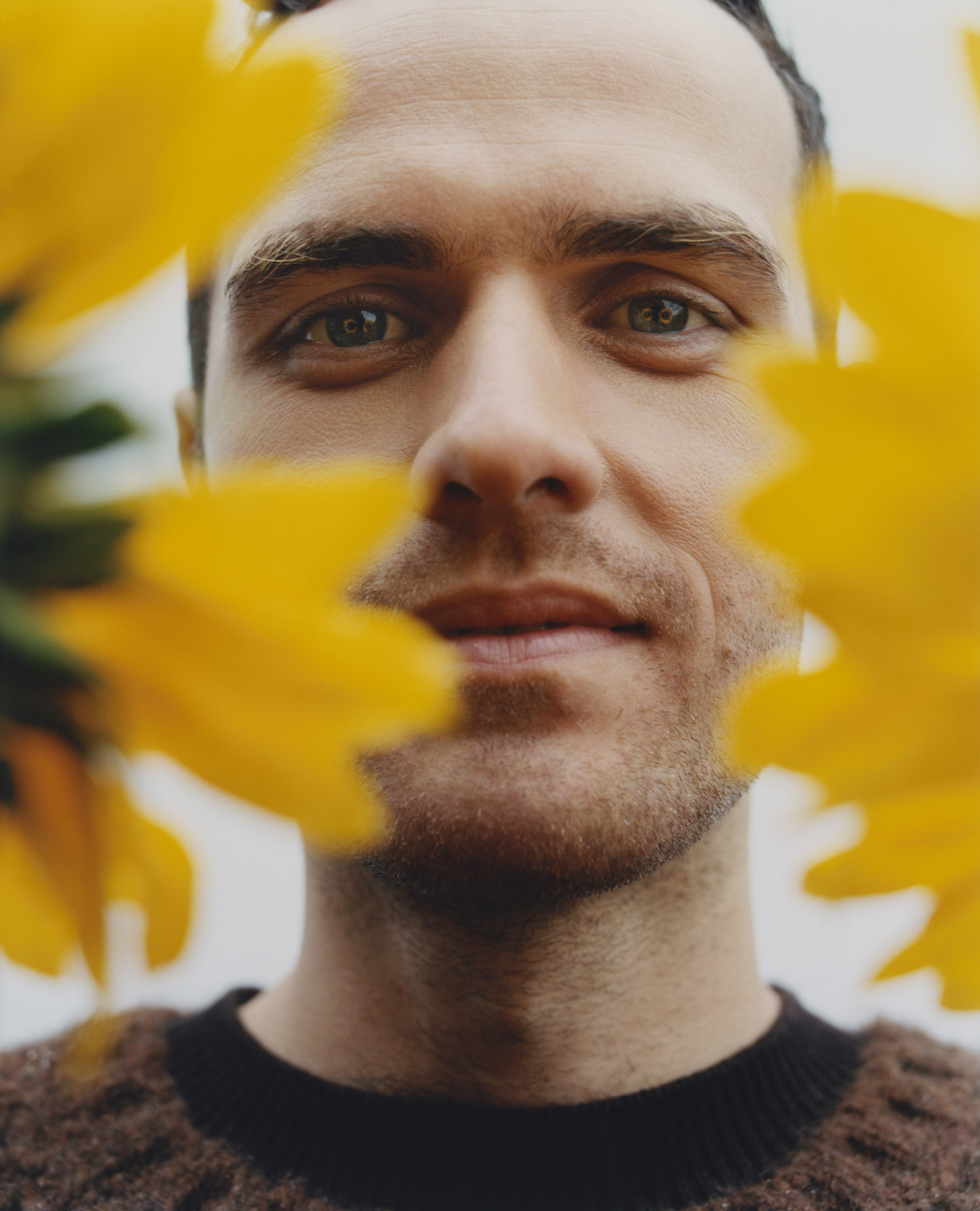
A CONVERSATION WITH JORDAN RAKEI

Atwood Magazine: First off, congratulations on not only the upcoming album release but on being the first ever artist in residence at Abbey Road Studios. How did that whole situation come to be?
Jordan Rakei: It’s a huge deal. They actually just got in talks about, they created a new role. They basically were looking for someone that was a bit younger because Abbey Road has a massive legacy you know they were starting to become what they thought they were too corporate maybe out of reach for younger artists because they have such a scary mystique around it so they wanted to bring someone in that was a bit younger…working with lots of people, collaborating, using the studio for what they are. Because I think a lot of modern artists can get away with using a computer or a laptop to make a whole album but they like the fact that I still call on big ensembles and string section, choirs and lots of musicians, so I’ll definitely be using the studio to its fullest potential. But yeah, it’s like an amazing dream for me. I’m so grateful. I still feel a bit like..ah, what’s it called? A bit like it doesn’t feel real. What is that thing called? Imposter syndrome. I just feel very lucky to have been given this opportunity and I’ll ride it right until the end in a year’s time.”
You fifth album, The Loop, is coming out on May 10th. What feelings do you have as the day gets closer?
Jordan Rakei: Do you know what? I’m just generally really excited for people to hear the album in its full entirety. Sometimes, it’s always hard releasing singles because they sort of tell a small story but it’s so important about the context of where they lie in an album. I’m still very much an album person. So, I’m just looking forward to people listening to the whole journey and hearing the world I’ve created. I’m just really proud of the record and excited to show my new chapter and the new ambition I had.
I know you’ve released some singles from the album already but do you feel like you’ve let the album go yet or does that feeling come on release day like, “Okay, this is all out of my hands now”?
Jordan Rakei: I let it go when we finished it last October. It’s just a sort of mentality I had; I was trying my hardest. I was in the studio every day, we were mixing it, and as soon as it was mastered I was like, “I’ve done my job. It’s now in the hands of my record label to sort it out and get it into the world.” In a way, I’ve slightly let go, but I think whenever fans hear it that’s another sort of element of letting go and it’s now the world’s now. It’s out of your hands and it’s into the consumers. And I never like using that word, but it’s like, it’s now up to the world to digest and judge.
That must be kind of freeing.
Jordan Rakei: Do you know what’s crazy though? When I was younger, I’d make an album and you feel like, “I’ve made an album, it will have an effect.” Because you feel like if you make a good album, you can sort of predict what will happen with the digestion, people liking it. But I think, maybe this is my age or maturity, but now I realize I can’t control what anyone likes. The current climate of what people listen to, what the current tastes are generally roaming around – different scenes around the world. Like in America, what are they listening to? In Europe, in Australia. You can’t control what’s popular, you can only really make an album you’re proud of and if it’s not the right time, in the world’s context of music then that’s out of your hands.
So a lot of my career has been well-timed, like Kendrick Lamar releasing To Pimp a Butterfly, which pushed forward left-field jazz music, and then I released a jazz album, so it kind of connected with more people. Whereas now, hip-hop, Afrobeats, trap are very popular in the world, and I am releasing a very acoustic, orchestral album. It’s hard to know how it will fit in the grand scheme of things, but that’s not really on me; that’s on the fans and on the public to soak it all in if they want to.
Right – are you making music for yourself, or are you making music to cater to an audience.
Jordan Rakei: Especially on this album, I really wanted to make a record that was self-indulgent, that I loved. And all the production ideas and the vocals and melodies and the lyrics. It’s like, all about me and my process. And then later when you start also building your marketing campaign, “How do I want this to look?” That’s when it starts getting tricky for me because that’s a bit out of my comfort zone but musically, I think I’ve told – I was really true to myself and told the story as best I can. And then the more social media side, it’s so tricky.
Honestly, I go through a lot of waves with the resentment of having to be public when it’s such a private experience writing. And then to share it is such a weird thing for me because I’m a sort of very private, introverted person. And then to constantly say to people, “check out my new song, check out my new song,” it feels so tricky with me. And like how to market in a really genuine way is one of my problems I’ve had my whole career but I’m really proud of the music so I feel like I could get behind it a bit more and tell the truth about how I feel.

Where did the inspiration for the album title come from?
Jordan Rakei: It’s sort of about how I was thinking I’m in a cycle of life where I’m now a new cog in the wheel of being a parent. And I was thinking that, “I’ve had a child and one day, he might go to have a child, and we’re just moving forward in this direction and you’re on the journey of life.” And sort of like in music it’s a loop; the genes are being passed down, and it’s like my reflection on my parents, my son, and my inner child, in a way, which is also a loop because they all feed into each other. Like when I foster my inner child, I feel like in a way that helps me parent my real child and it also helps me reflect on the way my parents – do you know what I mean? It’s a cycle, so that’s where it comes from. Parenthood.
What was the writing process like for these songs? There are some pretty soul-baring lyrics there.
Jordan Rakei: It was honestly really hard. It was different to how I’ve done anything before. But, I wanted to be honest with stuff. I think it’s really easy to hide behind metaphors and production tricks, or anything like that but I just really wanted to say stuff how it was. The last track on my album is all about my life and I just say things, “I was this age, this happened, I was this age, and this happened.” I’d never really say that in the past but it was really scary when I wrote it. It was quite emotional going through those memories and putting it onto paper. And then singing it was emotional. And then I was listening to it, really proud of it, then I was like, “oh no, people are gonna hear this.” Like, “I have to reveal these secrets.”
It’s weird, it’s quite a lonely experience, writing these really heavy journals and then out of nowhere you realize like, “Oh wait a minute, I’m a professional musician, I need to release this. I need to get it out to the world.” But in saying that, it was healthy for me to be really honest and to the point about stuff because while I feel like I grew as a songwriter, again, it can be an age thing, it could just be having child, you sort of case less about what people think and can sort of be a bit more real now. I think lots of things culminated into me being this more of a lyricist now but there’s definitely some soul searching on there, some deep stuff. Some turf I haven’t explored before.
How do you decide what to keep for yourself when writing about such personal things?
Jordan Rakei: I guess there’s a few things I had kept and maybe they’ll serve a purpose down the line in my career but I think there are some things I’ve gone through in my life that just didn’t relate to the concept of parenthood. Other things that might’ve really hurt me in the past or something, I felt like I could explore them at another time but anything under the umbrella of parenthood, I explored. My own upbringing, the regrets I think my parents might have and also my own parenting style and how things have come through without me wanting to do things in a certain way and just being honest.
I’ve got a song called “Learning” on the album, which is like, you know, there’s so much going on in the world, on like a geopolitical level, but also like the history of everything – everything I’m learning. The song was sort of about, I’m on my own journey trying to learn about this stuff, but then out of nowhere I have to impart wisdom to this baby from my own learnings and that’s like a big pressure to be a good reflection of the world onto your child. That’s why it’s like the lyrics are grappling with these big macro issues like war or race or anything like that and now I have to try and teach these lessons but am I the right person to teach this lesson? It’s all just, like, guilt. It’s tricky stuff to navigate when you’re a parent now but I’m just trying to be the perfect parent. [laughs]
I’m in a cycle of life where I’m now a new cog in the wheel of being a parent… it’s a loop; the genes are being passed down, and it’s like my reflection on my parents, my son, and my inner child, in a way, which is also a loop because they all feed into each other.
Did you set any specific intentions or goals during the creative process for this album?
Jordan Rakei: There’s a couple. The vulnerability was one of them. Another one of them was sort of like, I wanted everything to sound like humans in a room, or sort of the feeling. I wanted to hear mistakes and full takes. Basically I didn’t want the record to sound like it was made on a computer because I miss that tangible old school music. Like ’70s music where the drummer’s a bit sloppy or it seems a bit out of pitch sometimes. I was trying to capture that energy of humanity in a way, in a deep way. More just naturally embracing the mistakes and that sort of thing.
This album carries over musical elements that are present in previous work like, R&B, jazz, and soul. What is your history with these influences, how did they find you?
Jordan Rakei: It’s weird. I sort of have four different styles of influences I’d say. It’s like, my parents’ music, which is American Motown, disco, soul – basically just soul music. And then my dad, loved jazz and alternative rock music, and I grew up listening to pop music – pop music of my time. Which was like, R&B was huge in that time, like Usher, Chris Brown, NeYo, Valentino, all of my favorite artists. Jagged Edge. All of those sort of people were big in the ’90s. And so that’s how they filtered into me. And then now I’m into all that sort of music mixed with a bit of singer-songwriter guitar stuff. And then through that comes a weird mix of acoustic instruments with my soul background, melancholy lyrics from the more singer-songwriter. So it’s like a weird mix of all these styles.
I think that’s something I learned recently, it’s like, really embracing my influences has helped me a lot. Because I think we’re always trying to – I’m just a collection of my influences and I think all artists are a collective of their influences. I know D’angelo talked about it once in saying, he loves Sly and The Family Stone but he also loves Prince and he also loves Parliament and Funkadelic and he’s more obviously but he’s mostly those three artists put together. And those three artists have filtered down. So I’m just a filtered down version of Stevie Wonder, mixed with Jeff Buckley, mixed Tribe Called Quest. I don’t know, I’m just sort of filtered down to my own little sound. But there’s lots going on, especially on the new album it’s a mix of a lot of different sounds but they all influence me in different ways on different songs.

I wanted to be honest with stuff. I think it’s really easy to hide behind metaphors and production tricks, or anything like that but I just really wanted to say stuff how it was.
Are there any unlikely influences at play on this album?
Jordan Rakei: I would say film music inspired me a lot. Because in a way actually Motown and soul music was very orchestral. Rob Stevie, Curtis Mayfield, they had like, big arrangements. There were a lot of movies that sort of inspired me with the very sweeping strings. Like, strings is really, I’d say I was really inspired by old movies. Even like, abstract, indie cinema. I’m just thinking how much strings are so timeless. You know, they way they’re very classic. But they’ve been around for hundreds of years, not only just 50 years with soul music, or any music. It’s sort of like… the reason why they’re still relevant and still listened to today. And I was inspired by how they can really convey beauty or darkness or anything, any array of emotions, they just translated so well. So, films in a way had a big influence on me.
The soundscape of this album is interesting to me. There’s something quite open and cinematic and like sweeping about it. Can you talk a bit about creating the soundscape of this album and what it does as far as storytelling?
Jordan Rakei: So it started off with these demos and then I had ideas of working with an orchestra too; In the past I may have done synthesizers or guitars or anything like that, but I thought I really wanted to replace any sort of overdubbing part to orchestras, to create a maximalist effect of the mood I was going for. So, with “Learning,” I’m sort of crying out melodically and begging. There’s a sort of feeling of wanting or craving something. And the strings, I was trying to dictate to the string arranger of that song, being like, I just wanted it to feel like they’re crying and flowing and building as the track’s going.
In the studio we were really got all these amazing takes but I was sort of in a metaphorical way trying to explain to them more dynamics, more sweeping, more emotion, to exaggerate that feeling because it comes across more heavier or more profound. And we sort of went in detail on all of those moments when these arrangements happen on the album, just being like “what’s the energy here? Is it uplifting and bright like “Friend or Foe”? Then we need more aggression, we need a bit more energy and rhythm. Whereas other ones are more romantic, like “Hopes and Dreams.” A lot went into the arrangements, there was lots of collaboration with the orchestra on the day to get that feel of the lyrics across.
Hard to let outside perspectives into such a personal process?
Jordan Rakei: Yeah, a little bit. I think it is hard because you have such a clear idea on how you want to paint this story around your lyrics, but when other musicians are involved they add their own frame of reference with their own history and their own upbringing and their own feelings around what sadness means to them or whatever. So when you try to tell the guitarist, “I want there to be space, like you’re sitting on a farm” – I used to say random stuff like that in the studio – [they’d say,] “I’d never sat on a farm before, I can’t relate to that.” So, it’s funny. There was some direction where I was trying to throw in some parables and like having to translate your vision to someone else is always tricky. But in a way, letting their own vision dictate was actually better because they took it somewhere I didn’t even imagine it could go. And that’s the beauty of collaboration, really. It’s someone else’s flavors in your music.
Have you found that working with others enhances your solo work in any way? Have you carried anything with you that a collaborator said or did?
Jordan Rakei: What I learn from other artists is they’re always quite clear and have conviction. I’m naturally a people pleaser, very agreeable. And so, when I work with people for my own thing, I’m like, “what do you want to do? What do you want to do?” but, I learn from other people that are very sure of their own choices. And in my new album, I just kept trusting myself, being like, “what do I want? What does Jordan want on this song? What does Jordan want the drums to do?” Rather than letting everyone say anything about any instrument. I learned to be a bit more clear in my choices. And I think I feel what came of that was an album that’s very me in lots of different ways. An album that just really reflects my brain or like my sound and my vibe.
Why do you feel The Loop pertinent to now? Why do you feel this album is coming out now?
Jordan Rakei: Partially because it’s a story about parenthood and I’ve just become a father. But, I feel like this might be a, maybe this is my own bias, but I feel like music lately, to me, has felt quite closed, computerized. I feel like we’re missing a bit of that natural sound that we all grew up listening to. And I just had a dream of adding that to the world. I felt like the world needed a bit more humans playing. Someone singing, no autotune. Just natural stuff that you can press play that you can feel, “Yeah there’s some humans in a room there making all that sound.” That’s why I felt it was the right time to do something like this. My next album might be something completely different but the way I was feeling at the time I felt like I was craving that sort of thing as a listener, so I just went and made it myself.
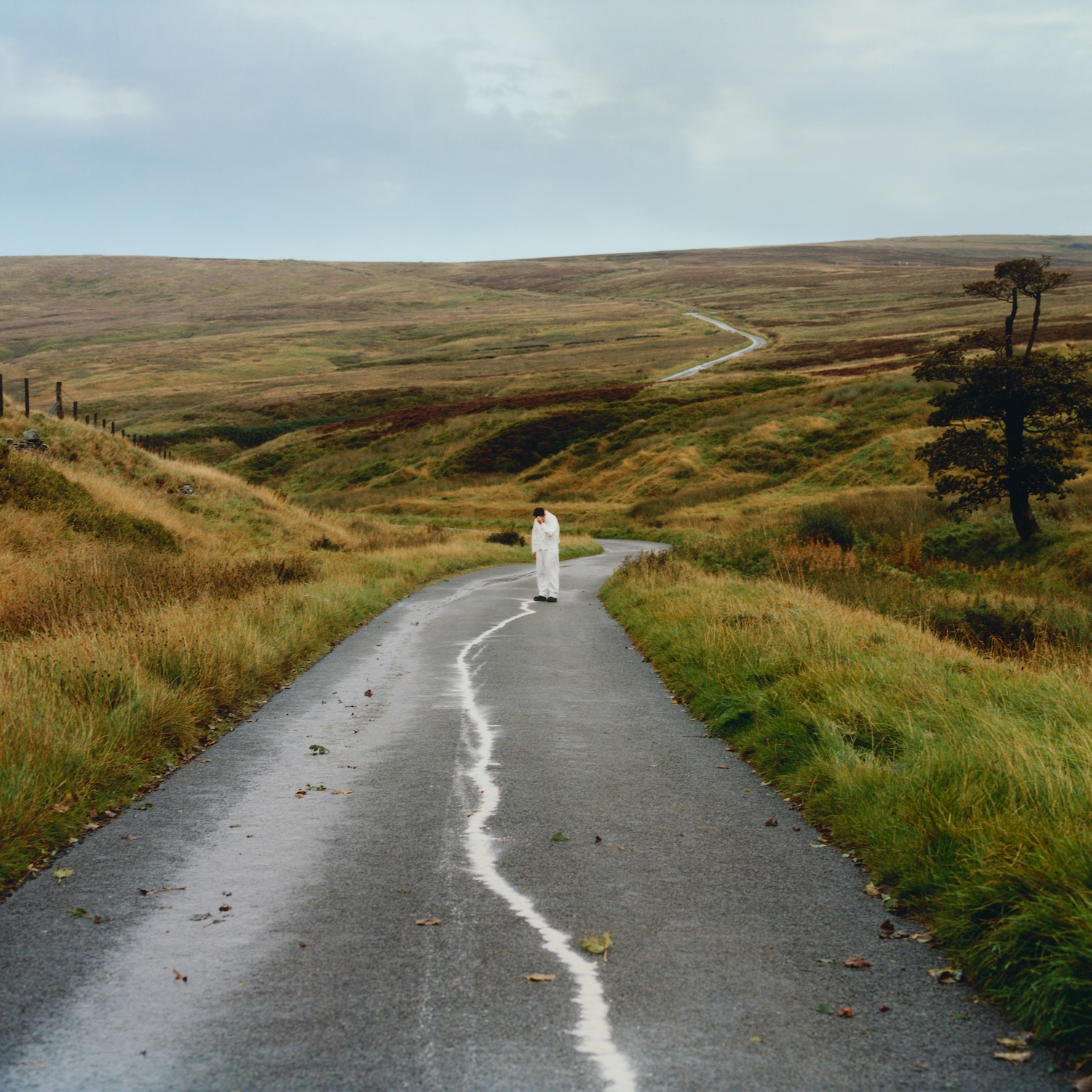
If you can, could you describe the most optimal way one can enjoy your new album? What do you envision as the perfect listening experience of The Loop?
Jordan Rakei: What I like to do – for a bit of background, I love to put headphones on and go – I just see how long an album is. If it’s a new album and it’s 45mins I’ll go on a 45min walk and I won’t touch my phone. And sometimes, you sink into it a bit more. If you’re sitting on a sofa focusing on the album with your headphones on, the lights are off, it becomes more of an analytical listening event. But when you’re doing something else, like cooking and it’s just on, you have headphones, or going for a walk, I think that’s when it breaks it up a bit, you just digest the feeling. So what I would request people to do is put an hour aside – it’s a long walk – but put an hour aside and just walk around a new neighborhood or just go to a park or something and just walk around and get engrossed in the world that hopefully I’ve created.
Before we go, I do want to mention the tour you’re about to embark on pretty soon. What can people expect to see when coming to a show?
Jordan Rakei: Well, because I haven’t been to America for a while, I’m gonna play lots of old music. I never want to be that artist that only plays the new stuff. But it’s like a mixture of the older Jordan songs, a mixture of middle-aged Jordan songs, and then lots off the new album and lots of new arrangements to keep it fun for us as a band. But I’m just really looking forward to coming back, singing to those audiences. Because I’ve neglected that part of the world for a long time but I’m looking forward to coming back.
— —
:: stream/purchase The Loop here ::
:: connect with Jordan Rakei here ::
— — — —

Connect to Jordan Rakei on
Facebook, Twitter, TikTok, Instagram
Discover new music on Atwood Magazine
© Verve Label Group
The Loop
an album by Jordan Rakei


 © Verve Label Group
© Verve Label Group

